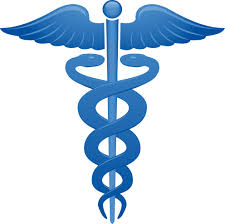+918048036831

This is your website preview.
Currently it only shows your basic business info. Start adding relevant business details such as description, images and products or services to gain your customers attention by using Boost 360 android app / iOS App / web portal.
Hypertension information for patients

What is Hypertension? Hypertension occurs when the pressure in your arteries stays consistently too high—generally identified when blood pressure readings are ≥140/90 mm Hg on two separate days . . It’s often a silent condition, frequently called the “silent killer“ because most people don’t notice any symptoms . ⚠️ Risk Factors Non-modifiable: Age, family history, genetics Modifiable: Being overweight, lack of exercise, high salt intake, low potassium, excessive alcohol, smoking, chronic stress, poor sleep 🧠 Symptoms (Usually None) Most people feel nothing. In severe, sudden spikes (e.g. ≥180/110 mm Hg), symptoms like headache, nausea, confusion, blurred vision, chest pain, shortness of breath or nosebleeds may happen—and they require immediate care 🩺 Diagnosis & Blood Pressure Measurement Office readings alone may be inaccurate due to “white‑coat hypertension.“ Home monitoring over several days provides more reliable data Accurate home tracking protocol: rest for 5 minutes; sit upright with arm at heart level; take 2–3 readings spaced a minute apart; use correct cuff size . Many doctors ask you to record morning and evening readings over a week to confirm diagnosis 🏥 Potential Complications if Left Untreated High blood pressure can affect many organs and systems over time: Heart: coronary artery disease, heart attacks, heart failure, arrhythmias Brain: both ischaemic and hemorrhagic stroke, vascular dementia, cognitive decline . Kidneys: chronic kidney disease, kidney failure Eyes: hypertensive retinopathy, vision loss Circulation: peripheral artery disease, aneurysms . 🎯 Treatment & Management 1. Lifestyle Modifications (First-Line) Diet: Follow the DASH diet—rich in fruits, vegetables, whole grains; low in sodium (<1, 500 mg/day ideally, or <2, 300 mg max) Increase potassium, magnesium, fiber, and calcium intake Exercise: Aim for at least 150 minutes/week of moderate‑intensity (brisk walking, swimming) or 75 minutes of vigorous activity plus strength training twice weekly . Weight control, stress reduction, quitting tobacco, and limiting alcohol to ≤1 drink/day for women and ≤2 for men Practices like yoga, meditation, and deep breathing can help . 2. Medications When lifestyle changes aren't enough or if blood pressure is in the Stage 2 range (>140/90 mm Hg), medication is often needed Common classes include: Diuretics ACE inhibitors (e.g. enalapril, lisinopril) ARBs (e.g. losartan, telmisartan) Calcium channel blockers Beta‑blockers Tailored based on age, other health conditions, and tolerability; combining medications may be necessary . 3. Ongoing Monitoring & Follow-up Keep a BP log and bring it to your healthcare visits. Make sure your device is validated and accurate; take it along to doctor’s appointments to compare measurements. Medicine adjustments may be needed every few weeks initially, especially if monitored readings are still high. 📅 When to See a Healthcare Provider Official hypertension diagnosis requires readings from two different days, often with home or ambulatory monitoring . . Stage 1 (~130–139/80–89 mm Hg): may start lifestyle changes and monitoring; medication may be added if there are other risk factors Stage 2 (≥140/90): most people will need both medication and lifestyle management Very high BP (e.g. ≥180/110) even without symptoms is considered an emergency and requires immediate medical attention. . ✅ Patient Tips Summary Action Recommendation Check BP regularly Home monitoring with correct technique and validated device Adopt healthy lifestyle DASH diet, exercise, weight control, managing stress Stick to treatment Take meds consistently, report side effects early Keep records Track readings, bring logs to follow-up visits Stay informed Learn about risks, ask questions about treatment plan For more details you can reach us at our clinic. #best doctor hypertension #best doctor mumbai

